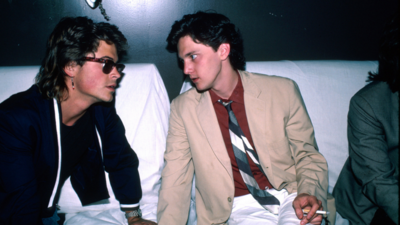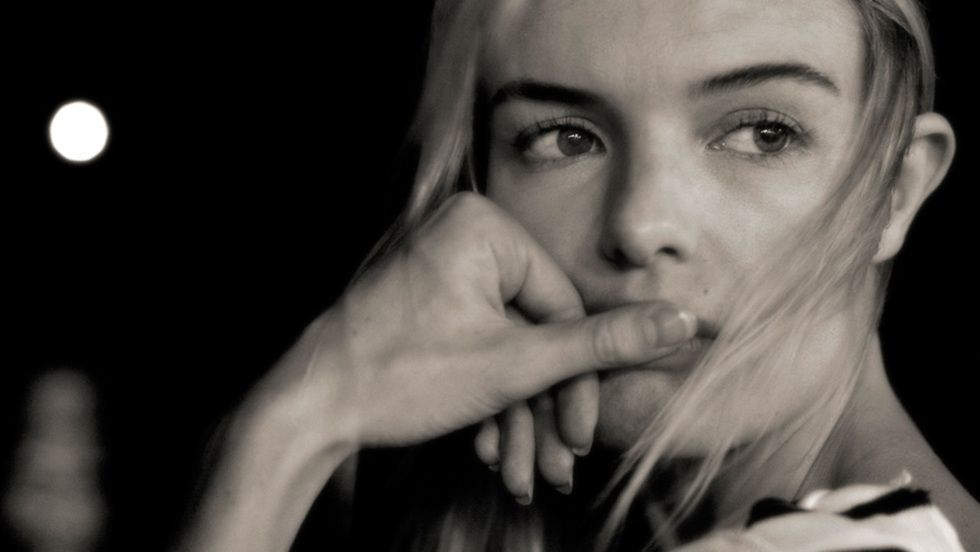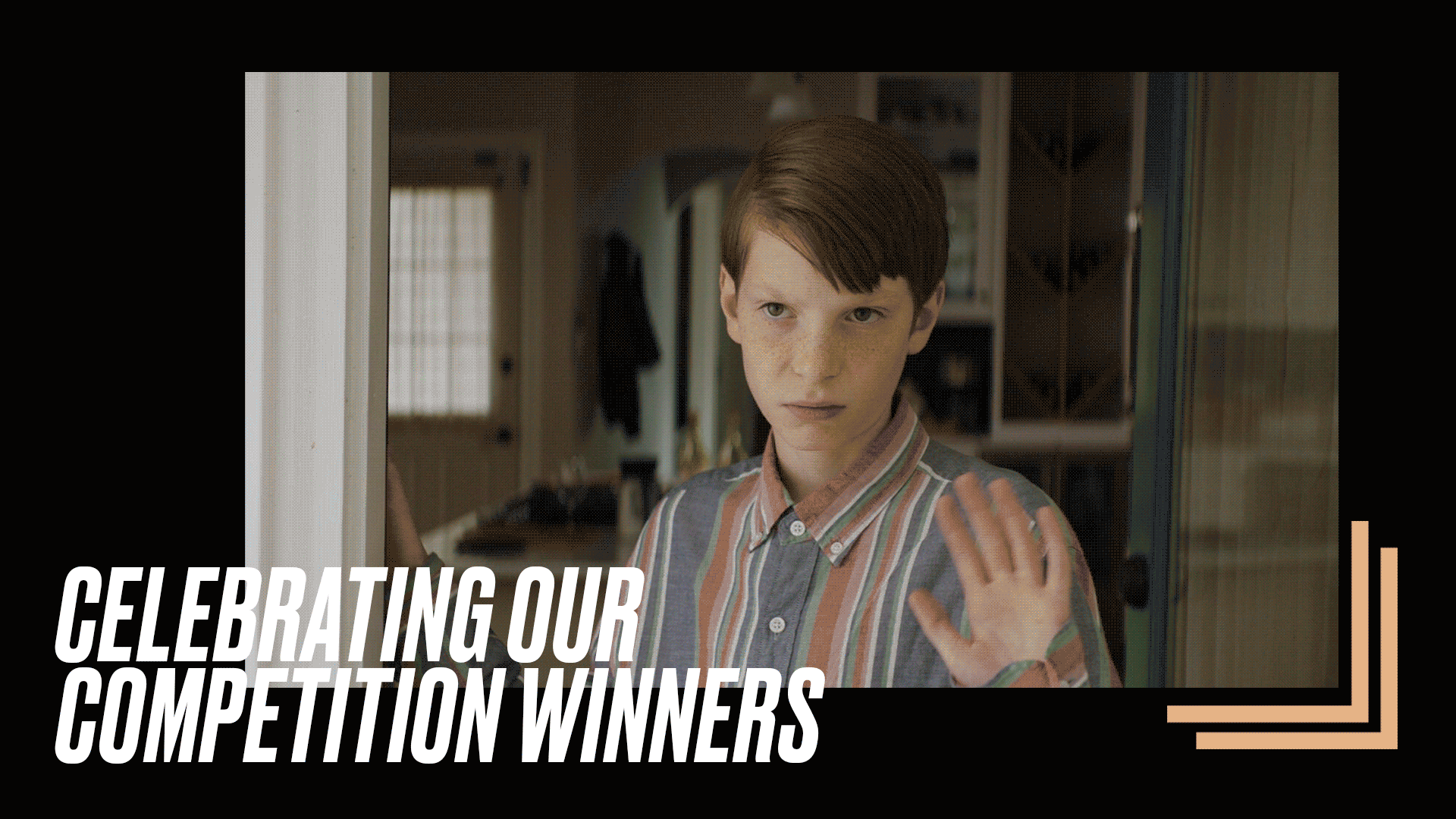
BY KAREN KEMMERLE |
Woman On The Verge
Director Kat Coiro discusses While We Were Here, her heartbreaking but hopeful romantic drama starring Kate Bosworth and set against the backdrop of the luscious Italian seaside.

Tribeca: Tell us a little about While We Were Here. How would you describe the movie in your own words?
Kat Coiro: WHILE WE WERE HERE is a subtle meditation on love, loss, loneliness and the nature of time. Heartbreaking but also hopeful, the film is set against the lush backdrop of the Amalfi coast Island of Ischia, features a trio of moving performances, and tackles the subject of infidelity without addressing morality. To me, the main theme in the film is that one’s individual struggles, be they miscommunication or surviving world wars, are no greater than the trials and tribulations that every human being must endure simply by existing at any point in time.
TRIBECA: What inspired you to tell this story?
KAT COIRO: While We Were Here was inspired by a set of tapes I made of my own Grandmother before she passed away; by Kate Bosworth, whose ability to tap into a rare, broken and wounded fragility informed the lead character of Jane, a character I wrote just for her; by my desire to figure out the meaning of Leonard Cohen's song "Famous Blue Raincoat" and by the island of Ischia. To go into more detail on the first bit of inspiration: I recorded my grandmother before she passed away in 2006 and much of the Grandmother character, voiced in the film by Claire Bloom, is based on those recordings.
The real life tapes were evocative and incredibly detailed personal accounts of my grandmother's experiences during WWII, but, much as Jane in the film struggles with what to do with them, I couldn't figure out how to preserve them and use them in a way that would tell her story. Weaving them into the narrative of While We Were Here added a timelessness to the main plot of Jane's infidelity and romantic affair that, I hope, elevates the movie from a simple relationship drama to something deeper and more inspiring.
TRIBECA: From inception of the idea for the film to the final print, can you give us a sense of your timeline? How long have you been working on While We Were Here?
KAT COIRO: Believe it or not, this film was not even a kernel of an idea on April 1, 2011. On April 2, 2011, Kate Bosworth and I attended the Vail Film Festival, where I presented her with their Best Actress award for, of all things, Idiots—the Funny Or Die skit she starred in with Zoe Saldana and Janeane Garofalo that I wrote and directed. While we were there Kate and I hatched the idea of making something fast and furiously. In May I finished the script. In June we got financing through 1821 pictures and cast the other two roles. In July we shot the film with a crew of four on location in Ischia when I was 7 months pregnant. And then we did all the post and got everything ready in time for Tribeca. So, to say it was a fast genesis is an understatement.
TRIBECA: I loved the scene in which Jane and Leonard discuss David Foster Wallace in bed and discuss his concept of life as a “blank infinity that stretches out.” What was your motivation for writing that particular scene? What did you intend to reveal about the characters?
KAT COIRO: This was the first scene I wrote in the film. After I’d decided to tell the story of a flailing couple, this scene shot me out of bed in the middle of the night. It spilled out whole and set the tone for the rest of the film. Jane and Leonard struggle with communication. It’s not just that he’s wrapped up in his music—she is an accomplice in their poor communication skills, because she expects from him what she cannot give. The scene you are referencing takes place on their first night in Naples. The street outside is loud and filled with foreign voices, with life and adventure. This trip is the perfect time for them to address their issues, and instead, they continue their mundane routine. Jane needs to talk about what has happened to her and what is happening to them, but she can’t get that intimate with her husband, so she brings up David Foster Wallace’s suicide.
She hopes that by indirectly talking about death she will coerce her husband into a conversation that she is burning to have. When she talks about a blank infinity stretching out, she is talking about their marriage. But Leonard doesn’t take the bait. He doesn’t know how his answer to her question spiraled her into anger, and he doesn’t ask. And then they make love, which is the very thing they should be talking about and not doing because, as Jane says later, “Sex is connected to life and death. Mostly death.” So the cycle continues. To me, this scene is the perfect encapsulation of trying to communicate but failing again and again and again. It allows us to understand Jane’s infidelity and need for a stranger’s ear.
TRIBECA: There’s a great line in While We Were Here that you give to Jane’s grandmother. She opines: “Time is shiftable.” Do you think that is true?
KAT COIRO: Think about waiting in line. How it can feel like forever, in a bad way. Then think about certain summer months that went by in a blip. We interpret time in different situations differently. To think that minutes are literally literal kills much of the poetry that is life. Why do certain memories linger and take up so much space on the timeline of our minds? I wanted to play with this idea in Jane and Caleb’s relationship. That although they’ve only known each other a short time, there is a return to childhood that makes Jane’s days feel both fleeting and eternal, in a way she has not felt for a long time, or ever, with Leonard. Hearing her grandmother echo what she’s feeling allows her to fall into this thing, that might be called love, headfirst.

TRIBECA: While We Were Here is beautifully photographed. Why did you choose to shoot in black and white instead of color? Did your choice of location—Ischia, Italy—lend itself to black and white photography?
KAT COIRO: Although we shot in color, the intention was always to show the film in black and white. The reasons for this were manifold. First, my director of photography Doug Chamberlain and I wanted to make a film that felt timeless. Although it is set in the present, we wanted it to feel like a story about being human that could exist at any time, and the black and white goes a long way to making that happen because it magically removes all distracting colors, especially in a place as vibrant as Ischia, and forces you to focus on the faces of the characters.
Second, many of our visual reference films and photographs were black and white (MANHATTAN, Control, The Bicycle Thief). Third, the camera we shot on doesn't capture a lot of information when the daylight is bright, and the light in Ischia in the summer was beyond bright. When we were shooting outside, we had to start before the sun crested the horizon, break during the day, and then resume shooting in the early evening. Conversely, when shooting inside we used available light only and the black & white gave us the control we wanted to make something simultaneously down and dirty and also beautiful.
TRIBECA: You frequently collaborate with Kate Bosworth. Can you tell us about working with her on this project and the rest of the casting process?
KAT COIRO: Kate and I had worked together twice before: on Idiots and my feature debut, L!fe Happens. The impetus for While We Were Here came from our shared enthusiasm to collaborate again and from Kate's desire to have a character crafted specifically for her. It was fun to write a role that embraced a fragility, brokenness and vulnerability that she could so gracefully tap into but, like her comedy skills, she had rarely had the chance to showcase. Kate worked alongside me during the crafting of the script, making sure that she was playing a character that made sense to her, reading every draft and improving upon it as only an actor can. When we got to Italy, however, she took off her analytic hat and immersed herself completely in Jane's sad psyche and was able to deliver a performance that is both lost and hopeful.
Iddo Goldberg, who plays Leonard, played the lead on one of my guilty pleasures, Secret Diary of a Call Girl, and he is an old friend of Kate's. I wanted someone stoic and English, someone who could be extremely restrained and detached while still retaining a level of likability. Jamie Blackley, who plays Caleb, is the big discovery of the film. We looked at a lot of teenage boys, and when I saw Jamie's audition I recognized immediately the full package. He's talented, gorgeous, youthful but mature, present, pulls of a flawless American accent, and is one of the nicest people I've ever worked with. Jamie just booked the co-lead in the 300 sequel and there's no doubt in my mind that he's going to become a force to be reckoned with in the industry.
TRIBECA: What's the craziest thing (or "lightning strikes" moment) that happened during production?
KAT COIRO: Imagine a crew of four, a sound man (who is also the editor) who floated our sound equipment into a grotto on a children's float toy, stolen locations, no pre-location scouting, a movie star riding around in a van with no seatbelts, a director who is 8 months pregnant and a country with no breakfast. Take your pick of lightning strikes moments!
TRIBECA: What's your advice for aspiring filmmakers? Is there one particular thing you learned?
KAT COIRO: Never stop working. I spent six years gearing up towards making my first feature, and during that time I never stopped creating, making no-budget shorts, writing scripts. By the time someone actually said yes to me, after eons of nos, I had a whole arsenal of material ready to rock and roll. Never stop. Never give up.
TRIBECA: What are you most looking forward to at Tribeca?
KAT COIRO: I’ve never watched WHILE WE WERE HERE in front of an audience, and I hope that the Tribeca audience walks out of the film feeling and thinking—thinking about relationships, about love, about the nature of time. I want them to want to move to Ischia. I want them to feel like they have been Leonard or Jane or Caleb at one point in their lives—to feel no judgment, but to accept that the span of a human life is fraught with mistakes, foibles, regrets, disappointments, but also with moments of intense beauty. I want them to feel the romantic pull of being closer to childhood and to death simultaneously. I hope that the film makes them appreciate the magical moments in their lives that stick with them and make life worth living. I also look forward to bringing my grandmother back to life in a poetic way.
TRIBECA: If you could have dinner with any filmmaker (alive or dead), who would it be?
KAT COIRO: Why? Can you arrange it?
TRIBECA: What’s your favorite New York movie?
KAT COIRO: Manhattan.
TRIBECA: What would your biopic be called?
KAT COIRO: Tea & Minnows.

Kat Coiro was born in Manhattan and studied directing at the Moscow Art Theatre in Russia. She has worked as an actress and the head of development at Bold Films. She has directed a number of shorts and the feature L!fe Happens. She is in post on the feature A Case of You, starring Justin Long, Evan Rachel Wood, and Vince Vaughn.

